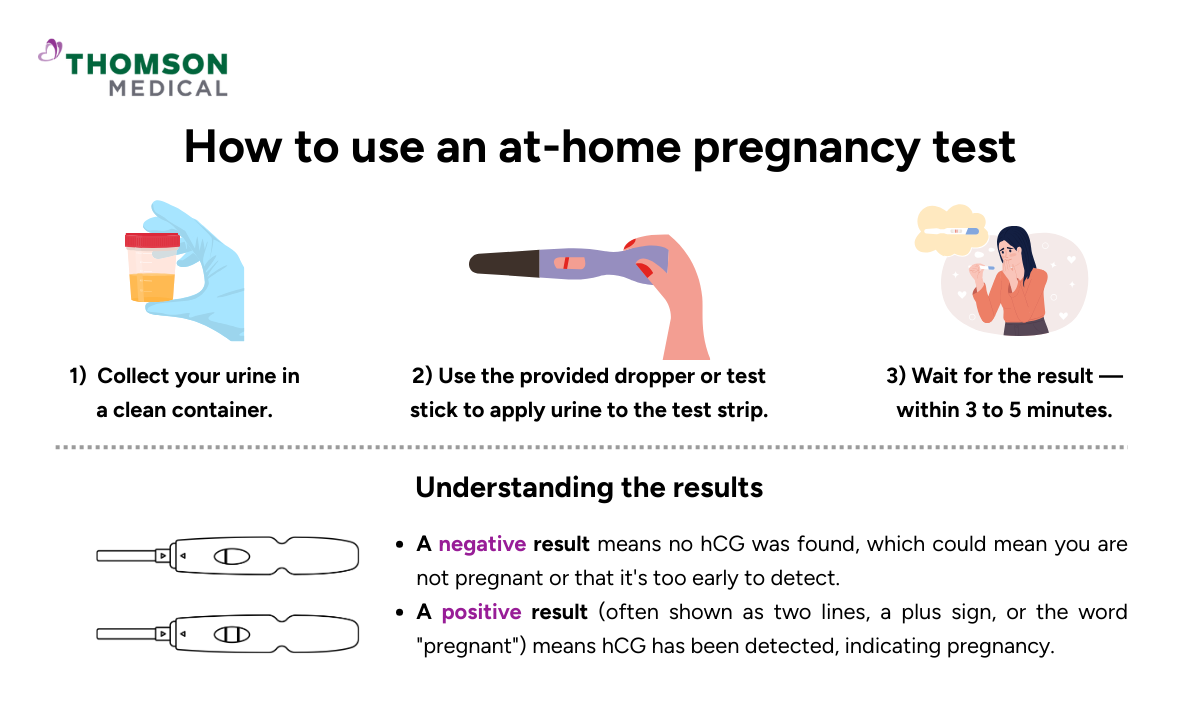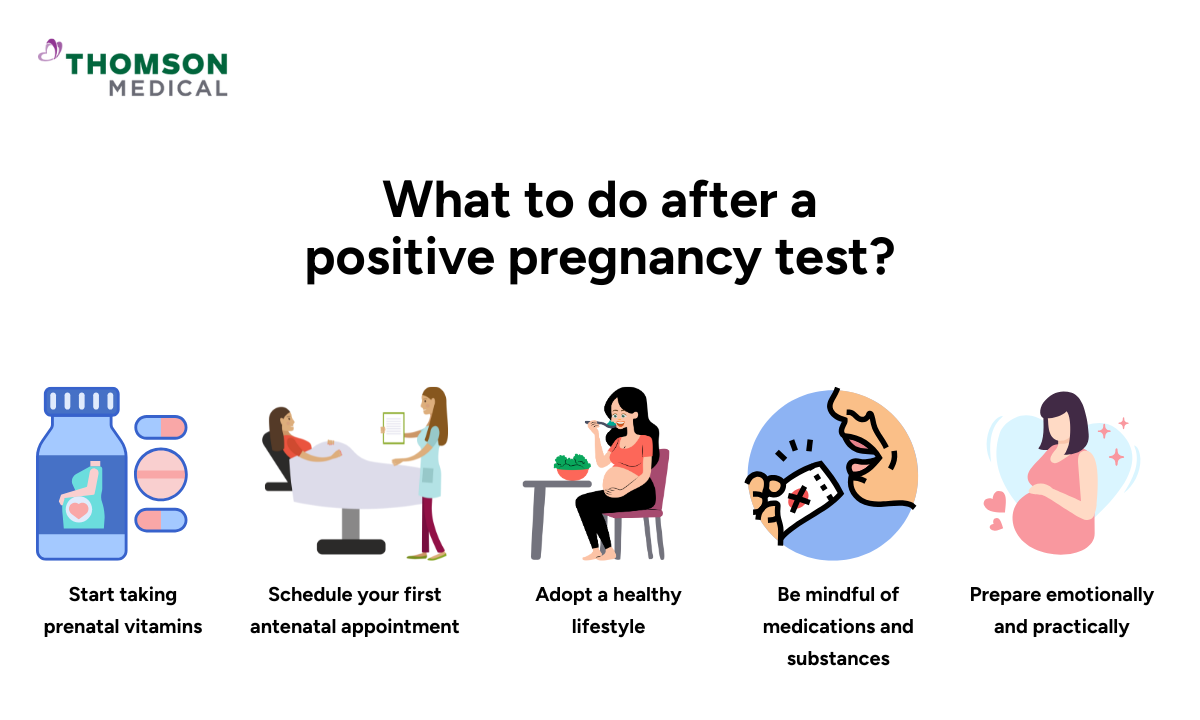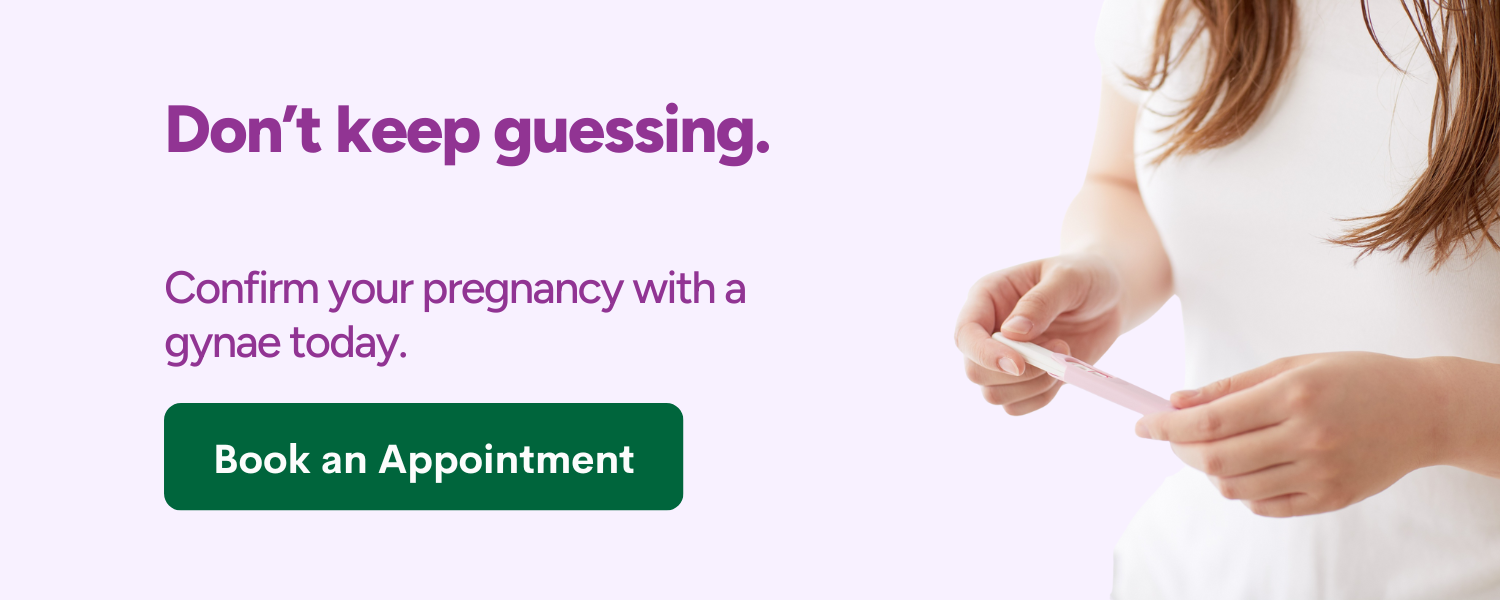Could you be pregnant? That simple question can make you feel hopeful, worried, or a mix of both. Whether you're trying to conceive, concerned about an unexpected pregnancy, or just need clarity after confusing symptoms, finding the right information about pregnancy testing in Singapore is an important step toward making informed health decisions.
What is a pregnancy test?
A pregnancy test is an easy way to check if you are pregnant. It works by detecting a hormone called human chorionic gonadotropin (hCG). This pregnancy hormone, produced by the placenta, appears in your body shortly after a fertilised egg attaches to the uterus, usually 6–12 days after conception.
Why does hCG matter?
It rises quickly in the early stages of pregnancy, doubling every 48 to 72 hours.
This confirms that the implant has been successful.
It forms the basis for all pregnancy tests.
There are two main ways to check for pregnancy: you can do a urine test or a blood test.
You can choose between convenient home urine tests and more sensitive clinical blood tests performed by healthcare professionals. While home tests detect hCG presence, professional blood testing measures exact hCG levels and provides clinical interpretation, which is important for understanding whether your pregnancy is progressing normally.
When can you take a pregnancy test?
If you're thinking of taking a pregnancy test, it's important to know when you should do it. This will help you get the most reliable results, whether you're hoping for a positive outcome or feeling worried.
Optimal testing timeline
Most accurate results:
Wait until after your missed period
Earliest detection:
About 10 to 14 days after conception
Best time of day:
First morning urine when hCG levels are highest
If you test too early, you might get a false negative result of pregnancy test because your hCG levels might still be too low to detect. Therefore, it's important to follow the optimal testing timeline for the most accurate results.
Early pregnancy signs to watch for
You might notice some early signs before testing, but remember that these symptoms can also be caused by other factors.
Missed or late period
Breast tenderness or swelling
Nausea or morning sickness
Frequent urination
Fatigue
Food aversions or cravings
Because these symptoms vary greatly, they can often feel confusing or uncertain. Pregnancy tests provide reliable confirmation when used correctly. Home pregnancy tests are widely available and convenient, while clinical testing with licensed healthcare providers offers additional services such as precise hCG measurement and clinical interpretation of results.
Special situations
Pregnancy testing in special situations often requires professional guidance:
Irregular cycles:
In this situation, doctors suggest waiting at least 36 days after your last period or four weeks after unprotected sex before you take a pregnancy test.
Fertility treatments:
Follow your clinic's timeline (usually 10-14 days post-transfer). Avoid testing early as trigger shots can cause false positive pregnancy test for 7-14 days
First trimester retesting:
If you had a faint positive on a home pregnancy test, retest 2-3 days later to confirm hCG levels are rising. Some women test weekly during early pregnancy for reassurance until their first doctor visit.
Previous pregnancy loss:
It's normal to feel anxious about testing again. Consider having support present when testing and discuss your concerns with a healthcare provider
Breastfeeding mothers:
Pregnancy is possible even while breastfeeding and before your period returns. Test if you suspect pregnancy, especially if you notice changes in milk supply or other symptoms.
Types of pregnancy tests

There are two main types of pregnancy tests: urine tests (commonly done at home) and blood tests (done at a healthcare facility).
At-home pregnancy test
At-home pregnancy tests are a convenient and private way to check for pregnancy using your urine. When used correctly, these tests can be up to 99% accurate. They are widely available at pharmacies, supermarkets, and online.
To use an at-home pregnancy test:
Collect your urine in a clean container.
Use the provided dropper or test stick to apply urine to the test strip.
Wait for the result — most tests provide an answer within 3 to 5 minutes.
Some tests may involve directly holding the strip in your urine stream. Always read the instructions carefully for the most accurate result.
Many women find that faint lines or unclear results create uncertainty that affects their peace of mind. Even faint lines typically indicate pregnancy, but the uncertainty about whether the line is "dark enough" can be emotionally challenging. Professional blood testing eliminates this guesswork by providing exact hCG measurements.
Blood pregnancy test
A blood test for pregnancy is usually performed in a clinic or hospital. Your healthcare provider will draw a small sample of blood, which is then analysed in a lab to measure your hCG levels.
There are two types of hCG blood tests:
Qualitative hCG test:
Confirms whether or not hCG is present (yes/no).
Quantitative hCG test (beta hCG):
Measures the exact amount of hCG in the blood, which can help track early pregnancy progress or detect potential issues.
Blood tests are more sensitive than urine tests and can detect pregnancy earlier, even before a missed period. Request an appointment with our licensed healthcare professionals for comprehensive pregnancy confirmation with precise hCG measurements and expert interpretation.
Pregnancy doctors
Loading...
How to interpret pregnancy test results?
Both urine and blood tests can confirm whether you are pregnant, but they differ in sensitivity and how results are displayed.
At-home urine pregnancy test results
Most at-home pregnancy tests use a reactive strip to detect pregnancy hormone in your urine. The results are usually shown in a small display window.
Positive indicators:
Depending on the brand, a positive result may appear as:
Two vertical lines
A plus (+) sign
The word “Pregnant” on digital tests
Important: Even faint lines typically indicate pregnancy, i.e., hCG is present, but levels may be low.
Blood test results
Blood tests are more sensitive than urine tests and can detect lower levels of hCG. They can provide accurate results as early as 7 to 10 days after conception.
What your hCG levels indicate:
Normal progression:
Levels double every 48-72 hours in early pregnancy
Slow-rising or declining levels:
May suggest a problem, such as a miscarriage or ectopic pregnancy.
Unusually high levels:
Could indicate a multiple pregnancy (e.g. twins) or, in rare cases, a molar pregnancy.
Pregnancy tests at Thomson Women's Clinics
Pregnancy testing is available at Thomson Women’s Clinic, where licensed healthcare professionals may use ultrasound or blood test methods to provide clear and accurate confirmation.
With over 45 years of experience in women's healthcare, our clinical team understands that pregnancy confirmation involves both medical accuracy and individual circumstances. Our testing services are available across more than 10 clinic locations in Singapore, providing accessible options for women seeking professional pregnancy assessment.
When to consider clinical pregnancy testing?
Women may consider clinical pregnancy testing in various circumstances, such as:
Faint positive lines on home tests may need follow-up blood testing.
Conflicting results from multiple home tests
Symptoms suggesting pregnancy despite negative home tests
Positive tests with concerning symptoms
Need for precise hCG level monitoring
History of pregnancy complications
Professional evaluation considers test results, medical history, symptoms, and individual circumstances to provide a thorough assessment of the pregnancy status.
.png?branch=production)
Steps to take after a positive pregnancy test

Getting a positive result on your pregnancy test can bring a mix of emotions — excitement, joy, and even uncertainty. Whether you planned or unexpectedly became pregnant, it's crucial to take the right steps early on to ensure a healthy pregnancy journey.
One of the first steps is to begin taking prenatal vitamins immediately, including 400–800 mcg of folic acid daily to reduce the risk of neural tube defects.
Contact your healthcare provider to make an appointment for pregnancy confirmation and an initial prenatal assessment within 6-8 weeks of your last menstrual period.
Adopt healthy lifestyle practices such as eliminating alcohol and smoking, limiting caffeine intake, and maintaining balanced nutrition to support early pregnancy development.
FAQ
How soon can I take a pregnancy test?
You can test as early as 10 days after conception, but for the most accurate result, wait until after your missed period.
What time should I take a pregnancy test?
For the most accurate result, it's best to take a pregnancy test first thing in the morning, when your urine is most concentrated and hCG levels are highest. This is especially important if you're testing early in your cycle. However, some high-sensitivity tests can still give reliable results at any time of the day.
How many weeks does it take to confirm if you're pregnant?
If you have a regular menstrual cycle, a home pregnancy test can usually detect pregnancy around 4 weeks from the first day of your last menstrual period — typically two weeks after ovulation.
What makes professional pregnancy testing different from home tests?
Professional testing provides exact hCG measurements, clinical interpretation by licensed healthcare providers, and comprehensive health assessment. While home tests detect hCG presence, professional confirmation ensures accurate results with expert guidance for your specific situation.
What is the maximum delay in periods if not pregnant?
For those with regular periods, a delay of up to 7 days can still be considered normal. If your menstrual cycles are irregular or the delay is longer, it’s best to consult a healthcare provider to rule out other causes.
How can I test for pregnancy at home without a pregnancy test kit?
While natural methods like salt, sugar, toothpaste, soap, or baking soda tests are popular online, they are only 70–80% accurate and not medically reliable. Instead, look for early signs such as:
A missed period
Morning sickness or nausea
Breast soreness or changes
Frequent urination
Are there any precautions to take before doing a pregnancy test?
Yes. To ensure accurate results, avoid drinking excessive fluids before the test, as this can dilute your urine and make it harder to detect hCG levels. It’s also best to wait until after your missed period and use your first-morning urine, which contains the highest concentration of hCG. Always read and follow the instructions provided with the test kit for the most reliable outcome.
Yes, although it’s uncommon, it is possible to be pregnant and still receive a false negative result. This can happen if hCG levels are unusually low, if the test is expired or used incorrectly, or if diluted urine affects the accuracy. In such cases, it’s best to repeat the test or consult a healthcare provider for a blood test or ultrasound to confirm pregnancy.
Is a pregnancy test kit 100% accurate?
Not really, while home pregnancy test kits are highly reliable, they are not 100% accurate. Most are around 99% accurate when used correctly and after a missed period. However, factors such as testing too early, diluted urine, expired tests, or improper usage can lead to false negatives or false positives. For confirmation, it's best to consult a healthcare provider for a blood test or ultrasound.

The information provided is intended for general guidance only and should not be considered medical advice. For personalised recommendations and tailored advice, please consult a specialist at Thomson Medical. Request an appointment with Thomson Medical today.
For more information, contact us:
Thomson Specialists (Women's Health)
Thomson Women's Clinic (TWC)
- Novena:
6592 6686 (Call), 8611 8986 (WA) - Bukit Batok:
6569 0668 (Call), 8686 3525 (WA) - Choa Chu Kang:
6893 1227 (Call), 8282 1796 (WA) Jurong:
6262 8588 (Call), 6262 8588 (WA)- Katong (female doctor):
6970 2272 (Call), 8611 9020 (WA) - Punggol:
6243 6843 (Call), 8811 0328 (WA) - Sembawang: 6753 5228
- Sengkang: 6388 8125
- Serangoon (female doctor): 6382 3313
- Tampines: 6857 6266
- Tiong Bahru: 6276 1525

